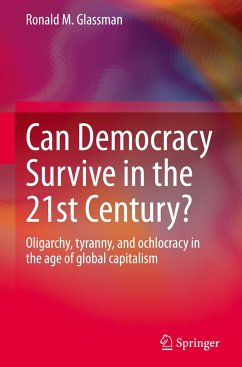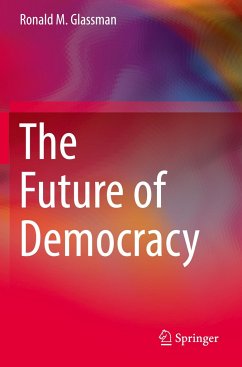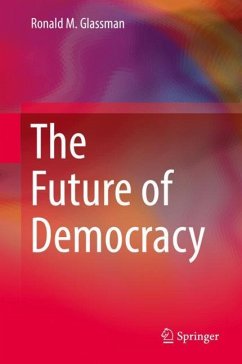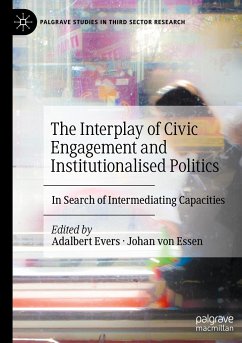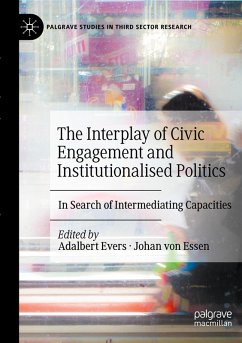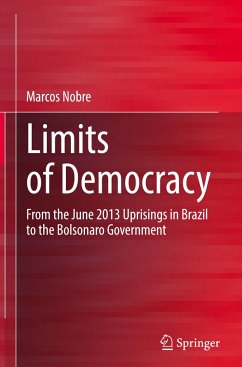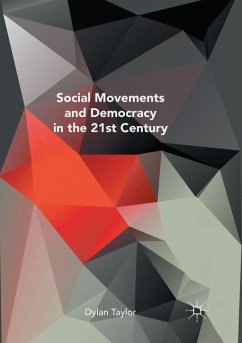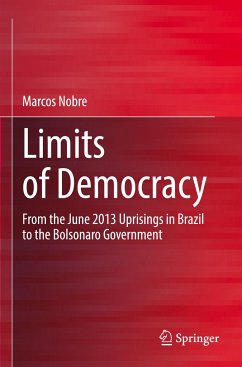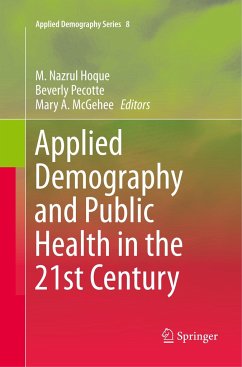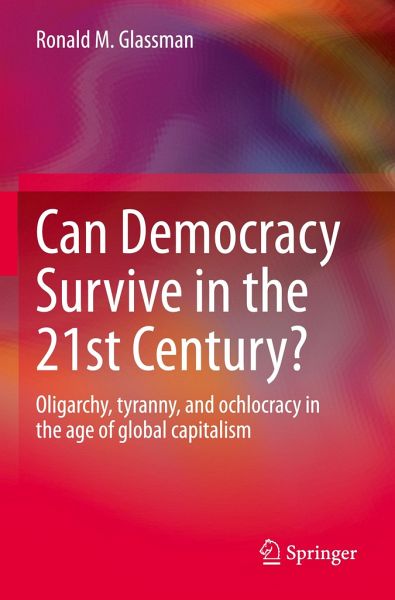
Can Democracy Survive in the 21st Century?
Oligarchy, tyranny, and ochlocracy in the age of global capitalism
Versandkostenfrei!
Versandfertig in 6-10 Tagen
113,99 €
inkl. MwSt.
Weitere Ausgaben:

PAYBACK Punkte
57 °P sammeln!
This book analyzes the many threats to democracy that exist in the 21st century and tries to understand how democracy can survive economic, social and political crises. It focuses on issues of oligarchy, tyranny, totalitarianism, and ochlocracy. It discusses how these forms of governance manifested themselves in ancient and medieval worlds, and how socio-economic transitions in the 21st century have created conditions that increasingly pose similar threats to modern democracy. The author discusses broad transitions in the contemporary world: economic transition to advanced, high technology cap...
This book analyzes the many threats to democracy that exist in the 21st century and tries to understand how democracy can survive economic, social and political crises. It focuses on issues of oligarchy, tyranny, totalitarianism, and ochlocracy. It discusses how these forms of governance manifested themselves in ancient and medieval worlds, and how socio-economic transitions in the 21st century have created conditions that increasingly pose similar threats to modern democracy. The author discusses broad transitions in the contemporary world: economic transition to advanced, high technology capitalism; cultural transition from traditional religious and family values to norms focusing on racial equality, gender and transgender equality and liberation, and multiculturalism; also, transition from the traditional religious worldview to rational-scientific worldview, and from religious morality to secular humanist ethics. These taken together undergird the political transition fromtraditional authority, involving monarchy and aristocracy, to rational-legal authority, involving constitutional law and democratic participation. The book shows, through extensive country discussions, that whenever these transitions become difficult, undemocratic forms of governance may emerge and override democracy.
Authored by an expert in the field, this book touches upon an especially topical theme in the contemporary world and is of interest to a wide readership across the social sciences, from researchers and students to discerning laypersons.
Authored by an expert in the field, this book touches upon an especially topical theme in the contemporary world and is of interest to a wide readership across the social sciences, from researchers and students to discerning laypersons.



